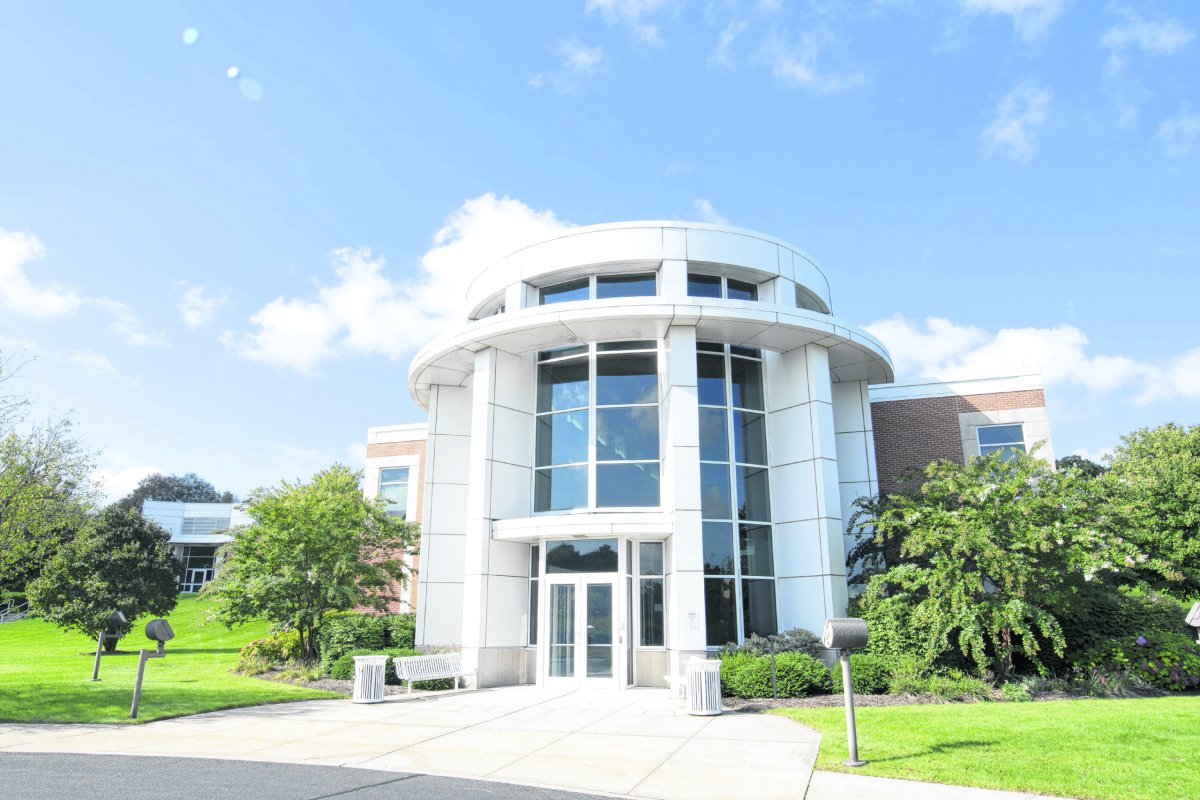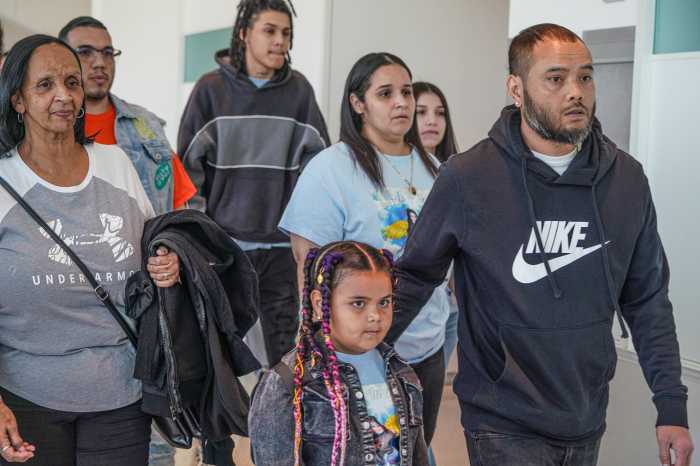Long Island’s biotechnology industry – once perceived to be a large part of the region’s future, but which has largely stagnated – may be getting a fresh start, thanks to a new initiative by New York State, which has pledged $150 million to build a gene therapy research hub in Lake Success that is projected to create several hundred new jobs.
Gov. Kathy Hochul’s recent announcement that the state would build a 200,000-square-foot cell and gene therapy research hub on a 15-acre site at 1 Marcus Ave., near Long Island Medical Center, was a shot in the arm for a sector that government and political leaders had viewed as a successor to the Island’s once vaunted aerospace and defense industry, whose leaders – Grumman Corporation and Fairchild Republic – vanished after the Cold War wound down.
‘It’s a breakthrough,” Dan Polner, who manages the Broad Hollow Bioscience Park on the Farmingdale State College campus, told the Press. “It could be years before this becomes a reality, but if you don’t start, it will never happen.”
Hochul’s plan will provide a developer with up to $150 million to finance, design, construct, lease and maintain a biotech research center that would include a 25,000-square-foot or larger incubator, according to a request for proposals.
The site at Lake Success is the downstate portion of a plan to jump-start a life-science sector. The state also announced plans for a cell and gene therapy hub in Buffalo.
According to the Request for Proposals (RFP), the incubator will support start-up companies, betting that their products will make it to the marketplace.
The hope is, the RFP said, that the project will create 300 to 500 new jobs on Long Island.
“New York is continuing to drive innovation in the life sciences to create good-paying jobs, improve the lives of countless New Yorkers, and bring the future of medicine to our state,” Hochul said in a statement.
Polner and other Long Island officials said that Lake Success is an ideal site because of its close proximity not only to Long Island Jewish Medical Center, which is operated by Northwell Health, but also to Cold Spring Harbor Laboratory, and to New York City, the home of many large investment banks.
Cell and gene therapy is complex work. It involves modifying cells or genes inside a patient’s body to help the patient fight diseases. The aim, scientists say, is to help treat cancer, heart disease, and other serious medical conditions.
The RFP said that developers could repurpose or tear down a 103,000-square-foot office building that is owned by Northwell and on the Lake Success property.
The RFP is due to the governor’s office by mid-March.
But Long Island has not had a lot of luck developing a biotech industry. It had once pinned a lot of its hopes on the success of one company in particular – OSI Pharmaceuticals, which had developed Tarceva, a lung-cancer treatment. OSI, founded at Cold Spring Harbor Lab over three decades ago, grew significantly after Tarceva was approved by the U.S. Food and Drug Administration in 2004. Four years later, it had sales of $380 million and employed nearly 500 people at facilities in Melville, the Broad Hollow Bioscience Park at Farmingdale, and in two other states and in England.
But the company became frustrated as plans to expand were delayed. OSI disappointed Long Island officials by announcing several years later that it would move to a campus in Westchester County, where it is now headquartered.
“This puts us back a couple of years,” Mark Lesko, executive director of Accelerate Long Island, which promotes the growth of tech companies, said at the time. The Island has yet to fully recover from the loss of OSI, Long Island business and political leaders acknowledged.
Kevin Law, chairman of the board of Empire State Development, the state agency overseeing the development of the gene therapy research project, said he believes that Hochul’s plan stands an excellent chance of succeeding, despite past failures to build a biotech industry on Long Island.
“Things are different now,” said Law, noting the growth of Northwell into the state’s largest healthcare provider, and the development of its research lab, the Feinstein Institute. Feinstein houses five institutes of behavioral science, bioelectronics medicine, cancer, health system science and molecular medicine.
Law said that Northwell, Cold Spring Harbor Lab, and Stony Brook are now collaborating more on health and science projects.
But Long Island currently has only about 50 biotech companies, said Posner, including three at the Bioscience Park and 10 at the Long Island High Technology Incubator at Stony Brook. In all, the Island has about 2 million square feet of space devoted to biotech, according to Polner.
By contrast, biotech has been booming in Cambridge, Massachusetts, for decades. About 20 million square feet of space are devoted to biotech in Cambridge.
Long Island has a set of unique problems when it comes to attracting businesses. Construction costs, utilities, and taxes are high. But those problems are also high in Cambridge. While Long Island has the State University at Stony Brook, Cambridge has Massachusetts Institute of Technology and Harvard University to draw students from.
Long Island has never been particularly adept at attracting companies to the region from low-cost states. But Law said the gameplan this time is different.
“We’re kidding ourselves if we think we are going to get companies to move to Long Island from cheaper areas,” he said. “The idea here is to incubate companies and get them to stay here.”

































